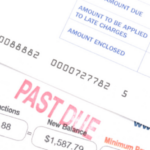With the cost of running a business rising, many entrepreneurs are turning to merchant cash advances for additional capital. But can you write off a merchant cash advance on your taxes?
Whether you’re considering taking out an MCA or already have one, it’s crucial to understand how they affect your business and, ultimately, your taxes. Read on to determine if you can write off an MCA on your taxes. Additionally, discover other business tax deductions and credits that exist.
Merchant Cash Advance vs. Business Loan
First, it’s important to understand the difference between a merchant cash advance and a traditional business loan. A merchant cash advance is a form of alternative business financing designed to provide quick cash flow. It’s different from a traditional business bank loan in a few major ways.
One of the most significant differences is that an MCA is not a loan from a legal standpoint. It’s an advance on your future receivables, such as credit card sales. That means MCAs are not subject to the same rules and regulations as regular business loans, including state usury laws.
Additionally, merchant cash advance companies don’t charge interest like a typical business lender. Instead of an interest rate, you pay a factor rate. This is a percentage, usually expressed as a decimal, that represents the total cost of borrowing fees. Factor rates typically range between 1.1 and 1.5. The more risk your business presents, the higher the factor rate. When expressed as an annual percentage rate, the cost of an MCA can reach 300% APR or more.
Can You Deduct the Cost of a Merchant Cash Advance on Your Taxes?
Considering the high cost of taking on a merchant cash advance, you might wonder if you can write off those fees in the same way you would for small business loan interest. In many cases, the answer is yes—you can write off MCA fees on your taxes as a business expense. However, certain conditions must be satisfied for this deduction to be allowed.
For one, the merchant cash advance must only be used for business purposes. No personal costs can be claimed as deductions on business tax documents. Additionally, the funds must be spent on business expenses and can’t be used for investment purposes.
Maintaining meticulous documentation of all transactions related to an MCA is important. This includes keeping a copy of the merchant cash agreement you signed. It also includes all correspondence with the merchant cash advance broker or MCA purchaser. This will help ensure that any fees paid are correctly reported when filing taxes. It’s also essential to consult with a qualified tax professional or preparer. They can provide additional guidance on deducting MCA fees for your business tax return.
Before taking out a merchant cash advance, understand all applicable fees and their potential tax implications. In general, being able to write off the fees on an MCA may not result in huge savings for your business.
Is a Merchant Cash Advance Considered Taxable Income?
When you take out a merchant cash advance, the lender advances you a lump sum of funds against your future debit and credit card receipts (or other daily sales activity) in exchange for a fee. You pay back this advance via automatic withdrawals of daily revenue.
Therefore, an MCA is not considered business income because it’s an advance on anticipated future income. MCAs are not subject to income tax and generally cannot be used to offset any tax liabilities. However, income that’s used to pay back an MCA is taxable.
Tax Write-Offs for Small Business Owners
In addition to MCA fees, there are many other valuable tax deductions and credits available to small business owners. Whether or not you took out an MCA, you can also look into whether you can claim these write-offs on your tax return:
- General business expenses: You can deduct the cost of goods or services necessary for running your business, such as rent, utilities, office supplies, equipment, and advertising.
- Home office: If you work from home, you may be able to deduct a portion of your home expenses, such as mortgage interest, property taxes, and utilities, as a home office deduction. Remember that the space must be used exclusively for business (so your kitchen or bedroom doesn’t count).
- Vehicle expenses: If you use a vehicle for business purposes, you may be able to deduct the expenses associated with its use, such as gas, maintenance, and depreciation.
- Travel expenses: If you travel for business, you may also be able to deduct the cost of transportation, lodging, and meals.
- Health insurance premiums: If you provide health insurance to your employees, you can deduct the premiums you pay as a business expense.
- Retirement plan contributions: You can deduct contributions you make to retirement plans for yourself and your employees.
- Education expenses: You may be able to deduct expenses related to continuing education or training necessary for your business.
These are just a few tax deductions available to small business owners. There may be others you qualify for. Again, keeping detailed records of all business expenses and consulting with a tax professional is essential. They will ensure you’re taking full advantage of all available deductions and complying with relevant tax laws and regulations.
Get Legal Help With Merchant Cash Advance Debt
Understanding how a merchant cash advance impacts your business is crucial. If you’re struggling with MCA debt and aren’t sure how to resolve it, consider working with an experienced debt relief attorney specializing in MCA debt help.
At Tayne Law Group, we’ve been helping clients resolve MCA debts and other business and consumer debts for over 20 years. Reach out today by calling toll-free at (866) 890-7337 or filling out our short contact form. We offer a free phone consultation so you can learn more about how we work and what solutions may be available to you and your business when struggling with MCA debt. We never share or sell your information, and all conversations are confidential.








